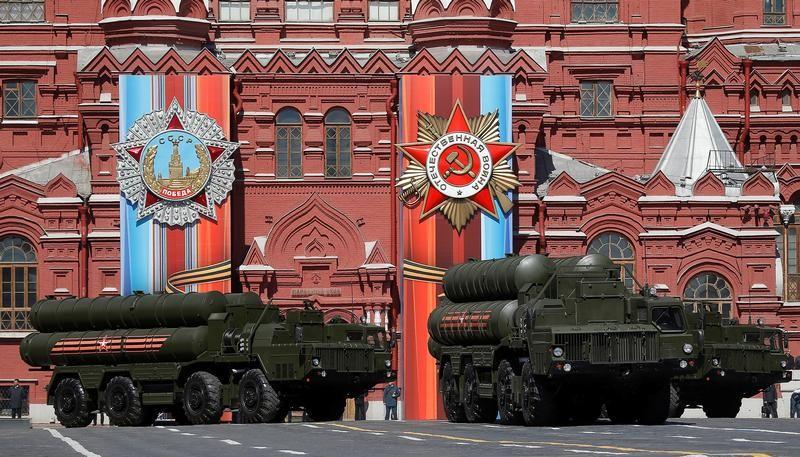How isolated is Russia?

On the fifth anniversary of the onset of the Crimean crisis, many have conjectured that Washington’s policy of isolating Russia has failed. Since 2014, Moscow has been the most diplomatically active of the world’s capitals as the Kremlin has sought to offset US sanctions by forging relationships with China, Turkey, Iran, Syria, Saudi Arabia and India.
But despite the window dressing, it does seem that such diplomatic activity is a frenzied effort by Moscow to show Washington that it still has friends. Though sanctions may have struggled to isolate Russia, they do play an important role in ensuring that Moscow’s untoward foreign policy is kept in check.
Roaring arms sales of Russia’s S-400 mobile long-range surface-to-air missile system have been held as an example of the country’s growing posturing and influence on the world stage. Costing approximately $500 million in lieu of the US Patriot Pac-2 battery that costs $1 billion, and a THAAD battery at about $3 billion, it is a significantly more cost-effective alternative.
The system is capable of engaging a wider array of target threats at longer ranges, with the added value of simultaneously neutralizing multiple threats. It is worrying for the US given that China, India and Turkey have already signed purchase agreements with the Kremlin.
With further interest from Saudi Arabia, Qatar and Iraq, the system risks serious repercussions under the Countering America’s Adversaries Through Sanctions Act, which President Donald Trump signed in August 2017.
As the US struggles to contain Russian ambitions, the fact that erstwhile American allies are turning to Russia for arms sales risks creating further destabilization. India, now the top buyer of Russian arms, signed a deal with Moscow for the S-400 last month. Turkey, an important NATO ally, is due to receive its S-400 system next year, and is expected to have it ready for use by 2020.
Given that China is already embroiled in a trade battle with the US, the delivery of its S-400 system could complicate matters. Despite Russian attempts to move into this space seemingly threatening the US, the 13 countries that have expressed interest in Russian weaponry could find themselves increasingly isolated and under sanctions as a result.
Despite high-profile diplomatic overtures to other emerging markets, Russia’s economic woes will increasingly restrict the government’s ability to posture on the world stage.
Zaid M. Belbagi
Oil prices stabilized earlier this month when the Organization of the Petroleum Exporting Countries (OPEC) and Russia agreed to slash production by 1.2 million barrels per day. After a rollercoaster ride over the past few years, plummeting from their 2014 peak, chief exporters such as Russia have felt the pinch.
Aside from cosmetic economic reforms, decision-makers in Russia are acutely aware that increased sanctions could force them to be less ambitious in pursing great-power rivalry with the US. Russia’s $1.7 trillion economy is crippled by chronic underinvestment, postponed reforms, widescale and haphazard state ownership, and Western sanctions that are slowly pressing its banking sector.
According to a report by the Russian Presidential Academy of National Economy and Public Administration (RANEPA), sanctions will affect the banking sector, where the losses may reach 100 billion rubles ($1.48 billion) due to a revaluation of capital and a weak financial result, which will be affected by low demand for expensive loans from the private sector.
The imposition of sanctions against a number of key Russian businessmen — including Gazprom CEO Alexei Miller, VTB head Andrei Kostin, Renova owner Viktor Vekselberg, Surgutneftegaz CEO Vladimir Bogdanov and Sibur board member Kirill Shamalov — will further squeeze the Russian government as it seeks to build its external relationships amid growing isolation.
Though the sale of the S-400 may have blunted the effect of sanctions, more than four years of economic restrictions are taking their toll on swathes of the economy. Although the official unemployment rate of 4.7 percent is near a historic low, cuts to real wages have been significant.
Disposable incomes have been in freefall since 2014, and despite stronger crude prices allowing Moscow to dodge critical economic reforms, domestic anger over jobs and livelihoods will be increasingly hard to mask. President Vladimir Putin’s popularity ratings have fallen sharply after a decision to raise the retirement age, with an increasing number of Russians holding him personally to account for the country’s economic malaise.
Despite high-profile diplomatic overtures to other emerging markets, Russia’s economic woes will increasingly restrict the government’s ability to posture on the world stage. As international funding has dried up for Russian banks and companies, the Kremlin may find itself at the mercy of global powers that already hold significant stakes in key Russian sectors such as oil and gas. How the Kremlin will continue to seek international instability in light of growing problems at home will be of great interest over the next year.
- Zaid M. Belbagi is a political commentator, and an adviser to private clients between London and the Gulf Cooperation Council (GCC). Twitter: @Moulay_Zaid








































